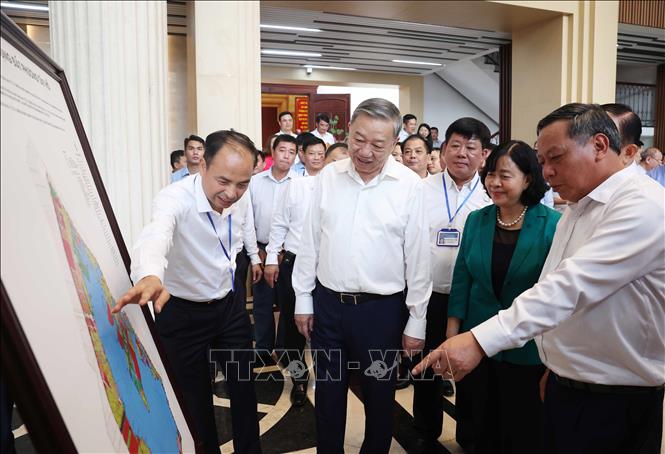
Recently, the Politburo and Secretariat issued Conclusion No. 202-KL/TW, and the Government continues to give strong instructions for this model to operate effectively, aiming to serve the people better.
Conclusion No. 202-KL/TW stated that the implementation of the two-level local government model has achieved many positive results. The Politburo and the Secretariat commended Party committees at all levels, Party organizations, the Government Party Committee, the National Assembly Party Committee, provincial Party Committees, city Party Committees, and Party Committees of communes, wards, and special zones for proactively and actively overcoming difficulties and removing obstacles in the practical implementation of the activities of the political system and two-level local government apparatus.
The conclusion emphasizes the need to continue to comprehensively strengthen the commune level - an important link in the two-level government system. Party committees and authorities need to promptly overcome shortcomings and limitations so that the commune level can strongly shift from passive to proactive, from management to governance and socio-economic development, care for people's lives, and promptly resolve the legitimate needs of people and businesses.
The Politburo and the Secretariat assigned the Government Party Committee and the National Assembly Party Committee to focus on perfecting institutions, especially issues related to decentralization, delegation of power, processes and procedures in the fields of finance, assets, planning, projects, land, headquarters, etc. Issues under the authority of the Government and the Prime Minister must be resolved immediately; issues under the authority of the National Assembly need to be urgently supplemented in the content submitted to the 10th Session of the 15th National Assembly.
Specific requirements are to strictly control the issuance of administrative procedures at localities, review and immediately abolish unnecessary procedures, and improve the effectiveness of online public services. These tasks must be completed before December 15, 2025.
The Politburo also requested ministries and branches to urgently review and amend legal documents to ensure feasibility in decentralization, delegation of power, and assignment of authority, and to overcome conflicts and overlaps that are not suitable for this new model. The Politburo assigned the Ministry of Finance to promptly allocate funds for document digitization and investment in technology infrastructure, prioritizing remote and isolated areas; the Ministry of Science and Technology to complete shared software, integrate national databases, and upgrade information infrastructure to serve digital transformation at the commune level.
Another important content is the requirement to immediately update and adjust land use planning, construction planning, and specialized planning after transferring and converting the functions of housing and land facilities for socio-economic development. The Politburo assigned the Government Party Committee, provincial and municipal Party Committees to lead and direct the urgent arrangement and handling of public assets, and remove obstacles arising during the implementation process...
At the 10th Session of the 15th National Assembly, providing information on the operation of the two-level local government, Deputy Prime Minister Pham Thi Thanh Tra said that although it has only been deployed for more than four months, the apparatus has basically operated stably, smoothly and has been recognized by the people. The biggest success is the rearrangement of the administrative model, the promulgation of a synchronous system of institutions and policies, and timely removal of obstacles for localities. The companionship and determination of all levels of government helped to complete a large amount of work in a short time. However, there are still difficulties in human resources, infrastructure and financial mechanisms that need to be further improved.
The Deputy Prime Minister said that the Government has identified six key groups of solutions, prioritizing the improvement of institutions and policies; restructuring the staff, civil servants and public employees, especially at the commune level. The Ministry of Home Affairs will soon complete the job position framework as a basis for assigning staff for the 2026-2030 period, and at the same time implement the project to train commune-level officials until 2030.
The Government will also review and supplement local development planning, design financial mechanisms suitable for the new model, and increase investment in digital transformation and information technology infrastructure. The application of AI and digital government will be the key solution to streamline the apparatus while still improving service quality. The Government is also developing a comprehensive salary reform project, expected to be submitted to the Central Government in the first quarter of 2026. The reform must be implemented carefully, fundamentally, in accordance with budget capacity, and ensuring the lives of officials and civil servants.
At the parliament, many National Assembly deputies agreed with this direction but suggested that there should be an early policy to support officials in merged areas and disadvantaged areas, who have to travel far and take on a larger workload while their income has not increased. Delegates also recommended early determination of job positions, clearer decentralization to communes and wards; investment in digital infrastructure and training in technology skills to improve administrative efficiency.
The practice of implementing the two-level government in localities across the country has initially shown many positive signs. The apparatus is more streamlined, reducing intermediate levels, helping operations to be faster and more effective. Grassroots officials have access to technology and apply modern working methods. Some localities, such as Quang Ninh, Da Nang, Thanh Hoa have deployed centralized public administration centers, electronically connecting departments, branches and sectors, helping to shorten the time to process documents and improve the satisfaction of people and businesses.
However, there are still many difficulties. In some remote communes, officials have to travel far to work, the merged headquarters are not yet complete, the information infrastructure is weak, reducing service efficiency. Officials at the grassroots level have to take on many jobs, while the remuneration policy is not commensurate. Young civil servants lack experience, while older civil servants have difficulty adapting to new management methods.
Faced with that reality, many localities have recommended that the Central Government soon complete the financial mechanism, allocate reasonable funds for investment in technology infrastructure, and have policies to encourage young cadres to work at the grassroots level. For example, Ho Chi Minh City has proactively opened training courses on digital skills and citizen service skills, aiming to build a team of "serving civil servants" in the true sense.
Streamlining the apparatus is an inevitable trend, but streamlining is not just about reducing people, but increasing efficiency. Institutional reform, improving the quality of cadres, promoting digital transformation and creating an environment that encourages innovation are the conditions for the two-level government to promote efficiency. As Deputy Prime Minister Pham Thi Thanh Tra emphasized: "The ultimate goal is to serve the people better."
Source: https://baotintuc.vn/thoi-su/tinh-gon-bo-may-muc-tieu-cuoi-cung-la-vi-dan-20251102100646262.htm


![[Photo] Panorama of the Patriotic Emulation Congress of Nhan Dan Newspaper for the period 2025-2030](https://vphoto.vietnam.vn/thumb/1200x675/vietnam/resource/IMAGE/2025/11/04/1762252775462_ndo_br_dhthiduayeuncbaond-6125-jpg.webp)
![[Photo] Ca Mau "struggling" to cope with the highest tide of the year, forecast to exceed alert level 3](https://vphoto.vietnam.vn/thumb/1200x675/vietnam/resource/IMAGE/2025/11/04/1762235371445_ndo_br_trieu-cuong-2-6486-jpg.webp)
![[Photo] The road connecting Dong Nai with Ho Chi Minh City is still unfinished after 5 years of construction.](https://vphoto.vietnam.vn/thumb/1200x675/vietnam/resource/IMAGE/2025/11/04/1762241675985_ndo_br_dji-20251104104418-0635-d-resize-1295-jpg.webp)
![[Photo] Comrade Nguyen Duy Ngoc holds the position of Secretary of the Hanoi Party Committee](https://vphoto.vietnam.vn/thumb/1200x675/vietnam/resource/IMAGE/2025/11/04/1762234472658_a1-bnd-5518-8538-jpg.webp)

![[Photo] Ho Chi Minh City Youth Take Action for a Cleaner Environment](https://vphoto.vietnam.vn/thumb/1200x675/vietnam/resource/IMAGE/2025/11/04/1762233574890_550816358-1108586934787014-6430522970717297480-n-1-jpg.webp)
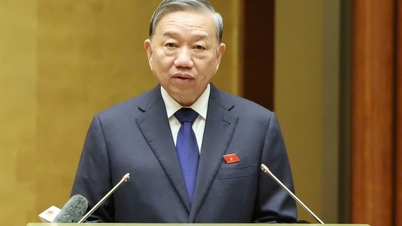




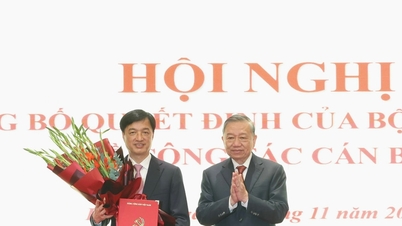

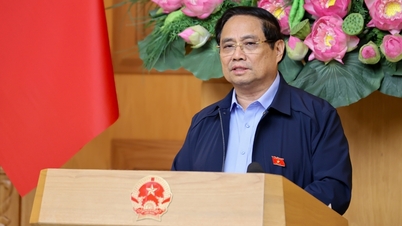




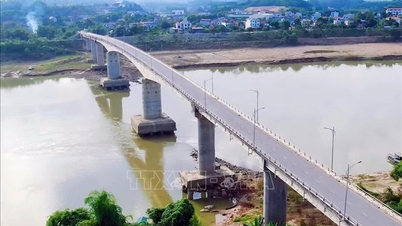

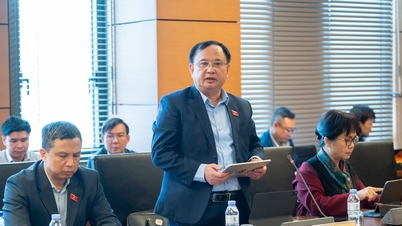





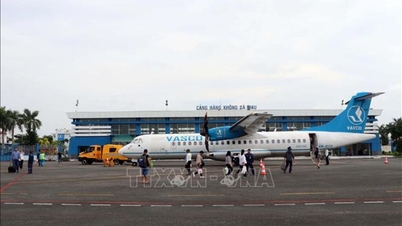







































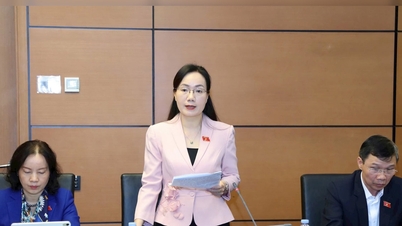

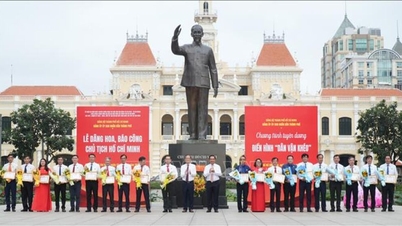










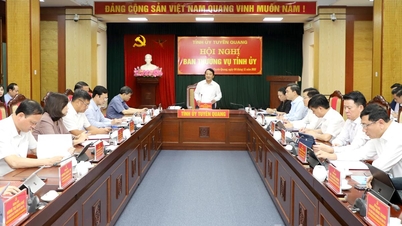





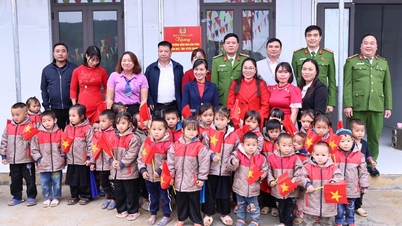
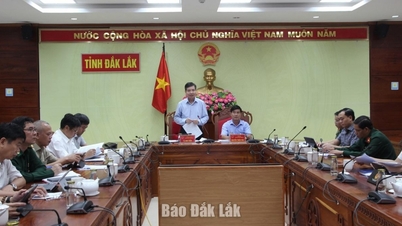
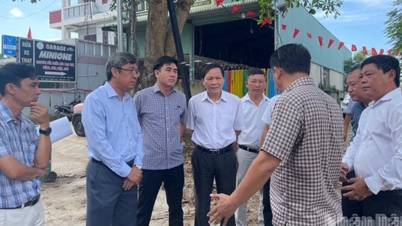

















Comment (0)